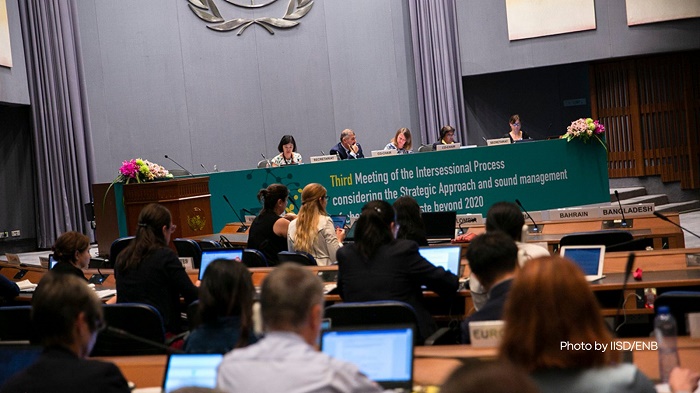The environmental health and justice watchdog group, EcoWaste Coalition, has added its voice to the call to create a Global Green Chemicals and Waste Fund.

The group aired the need for a dedicated fund to address the global toxic chemical crisis as stakeholders from the government, industry, civil society and other sectors gather in Nairobi, Kenya for the resumed fourth meeting of the Intersessional Process (IP4) for the Strategic Approach to International Chemicals Management (SAICM) from February 27 to March 3, 2023.
“As an advocate for a zero waste and toxics-free future, we understand the need for accessible, adequate and reliable financial resources for programs and projects, including those initiated by grassroots communities, that will prevent and reduce chemical and waste pollution that is harming human health and the environment,” said Aileen Lucero, National Coordinator, EcoWaste Coalition.
“A dedicated global fund is required to support the effective implementation of the new SAICM instrument that is currently being negotiated,” she stated. “We therefore urge the IP4 participants, especially the government negotiators, to agree on establishing a Global Green Chemicals and Waste Fund.”
“Like the Green Climate Fund and the Global Biodiversity Fund, the proposed fund can equip governments and civil society groups with the much-needed resources to deal with the planetary crisis due to pollution from chemicals and waste.”
As a participating organisation of the International Pollutants Elimination Network (IPEN), the EcoWaste Coalition is one with other public interest groups in advocating for chemical producers to internalise the full health, environmental and social costs of their products.
As noted by the United Nations Environment Programme (UNEP): “The vast majority of human health costs linked to chemicals production, consumption and disposal are not borne by chemicals producers, or shared down the value-chain. Uncompensated harms to human health and the environment are market failures that need correction.”
At the first session of IP4 held in Bucharest, Romania in 2022, the thematic group focusing on finances covered the need to make new financial resources available to support the implementation of the new SAICM instrument. The Africa Region and IPEN/CIEL called for a globally coordinated fee on basic chemicals (i.e., chemical feedstocks). The proceeds from such fees should go into a newly created international fund for the sound management of chemicals that should be accessible to all stakeholders and not be time limited.
However, an agreement on the existence and the replenishment of this kind of dedicated external funding mechanism is far from being reached.
The resumed session of IP4 should agree to create a new global fund to address chemicals management, as is currently the case for other multilateral environmental agreements on biodiversity and climate.
The fund should be accessible by all stakeholders and should include significant funding from the chemical industry and other sectors that are downstream users of chemicals (e.g., through extended producer responsibility frameworks).
According to IPEN, a successful IP4 outcome will be demonstrated by an instrument that has a timeless vision with a strong enabling framework; sets ambitious strategic objectives addressing prevention, precaution, information sharing, and the urgency to achieve the sound management of chemicals; includes chemicals and all waste throughout their lifecycle; formulates its targets, indicators, and milestones that are measurable and time-bound; and carries-over existing issues of concern to the new instrument automatically.
It should further provide for financial means for addressing the modes of implementation of the instrument; includes a universal periodic review method for reporting; links to funded, obligatory national action plans for agreements in the framework; and is open, inclusive, and involves transparent multi-sectoral and multi-stakeholder participation.
IPEN, which is composed of over 600 public interest groups from more than 120 countries, seeks to improve chemical policies and raise public awareness to ensure that hazardous substances are no longer produced, used, or disposed of in ways that harm human health and the environment.
